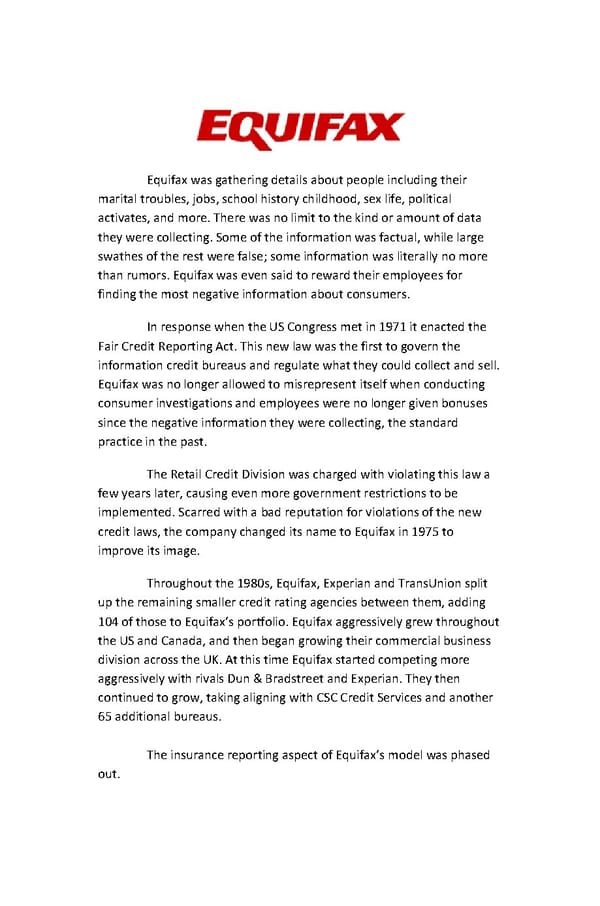Equifax was gathering details about people including their marital troubles, jobs, school history childhood, sex life, political activates, and more. There was no limit to the kind or amount of data they were collecting. Some of the information was factual, while large swathes of the rest were false; some information was literally no more than rumors. Equifax was even said to reward their employees for finding the most negative information about consumers. In response when the US Congress met in 1971 it enacted the Fair Credit Reporting Act. This new law was the first to govern the information credit bureaus and regulate what they could collect and sell. Equifax was no longer allowed to misrepresent itself when conducting consumer investigations and employees were no longer given bonuses since the negative information they were collecting, the standard practice in the past. The Retail Credit Division was charged with violating this law a few years later, causing even more government restrictions to be implemented. Scarred with a bad reputation for violations of the new credit laws, the company changed its name to Equifax in 1975 to improve its image. Throughout the 1980s, Equifax, Experian and TransUnion split up the remaining smaller credit rating agencies between them, adding 104 of those to Equifax’s portfolio. Equifax aggressively grew throughout the US and Canada, and then began growing their commercial business division across the UK. At this time Equifax started competing more aggressively with rivals Dun & Bradstreet and Experian. They then continued to grow, taking aligning with CSC Credit Services and another 65 additional bureaus. The insurance reporting aspect of Equifax’s model was phased out.
 Mastering Business Credit - Preview Page 27 Page 29
Mastering Business Credit - Preview Page 27 Page 29